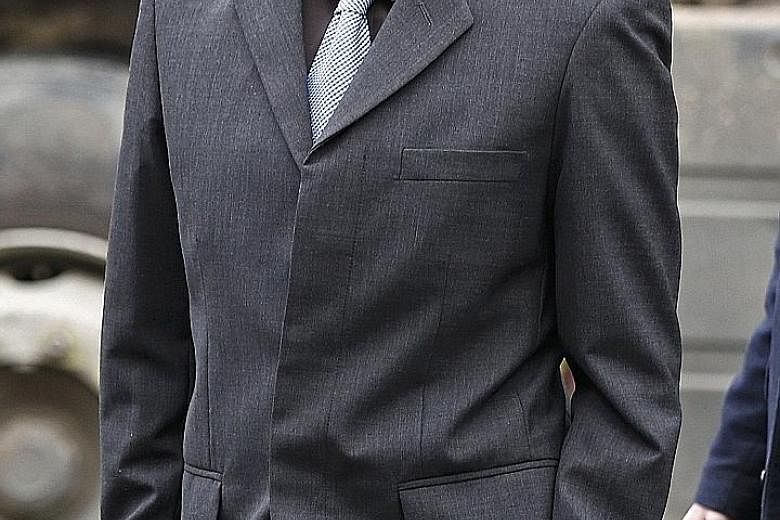LONDON • A British judge has ruled that a London financial trader accused of manipulating markets and causing the 2010 "Flash Crash" in US stocks can be extradited to face trial in the United States.
Navinder Singh Sarao, a 37-year-old working out of a modest suburban London home, allegedly made millions of dollars with a computer programme that could automatically manipulate prices.
British Interior Minister Theresa May has to formally authorise the extradition and Sarao's lawyers said they would appeal if she does so.
A grand jury in Chicago indicted Sarao last year, accusing the Briton of earning US$40 million (S$54.7 million) through techniques including market "spoofing", or making fake orders, between 2010 and 2014.
The indictment detailed how the trader built a system with the help of programmers specifically designed to help him repeatedly issue and cancel simultaneous sell-and-buy orders in key securities to make the prices go in the direction he wanted.
The indictment said Sarao focused on certain securities like the E-mini S&P futures contract on the Chicago Mercantile Exchange to move prices, especially in moments of high market volatility.
His use of the dynamic layering technique "was particularly intense in the hours leading up to the Flash Crash" of May 6, 2010, when the Dow Jones Industrial Average plunged 600 points in minutes, wiping hundreds of billions of dollars from share values, said the indictment.
Playing E-minis, he made and then modified bogus orders thousands of times in a short period, ultimately cancelling them without ever executing any.
At the same time, he raked in US$789,000 in profits on real E-mini contract trades made that day.
The indictment said Sarao had repeatedly rebuffed probes by regulators, insisting that he was just a fast-fingered normal trader not relying on computer programmes for trading.
He also brushed off warnings that his activity was illegal and continued to trade. The indictment set 22 counts of wire fraud, price manipulation and spoofing against Sarao. He was arrested in London last April and was granted bail in mid-August.
His lawyer Richard Egan said after yesterday's court ruling they will be appealing the decision.
Sarao remains on bail pending the appeal. The maximum US sentences for the charges he faces amount to more than 350 years in prison.
AGENCE FRANCE-PRESSE, REUTERS

